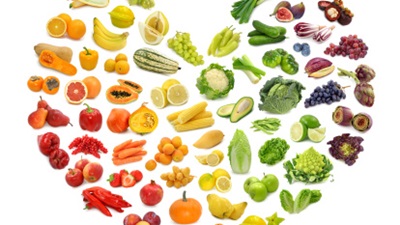
We all understand how important cancer prevention is. Cancer is one of the leading causes of death in North America and its influence has been felt by many, including myself. There is also a great deal of evidence which concludes that cancer can be controlled by the lifestyle we choose to follow. This, of course, includes the diet we consume. If you walk around your grocery store, you will see examples of foods that will lower your risk of developing cancer.
Few Cancer-fighting Foods you should Add to your Diet:
1. Brassica Vegetables
This family of vegetables includes cabbage, cauliflower, broccoli, Brussels sprouts, spinach, kale, and Swiss chard. These vegetables share one important trait: they all contain chemicals called indoles (more specifically isothiocyanate, sulforaphane, indolylemethane, and indole-3 carbinol). Although these chemicals have rather long names, they have been extensively studied for their effects upon cancer cell growth and proliferation.
This is especially the case in breast cancer cell studies. Other studies have indicated that sulforaphane can actually decrease the activity of various types of cancer stem cells. The chemical known as indole-3 carbinol has been previously studied for its positive influence upon breast cancer cell growth and its ability to improve detoxification mechanisms in the liver.
Brassica vegetables can also contain generous amounts of antioxidants which can prevent cancer-causing chemicals from damaging cells. I recommend consuming one to two servings per day of these nutritional superstars.
2. Carrots (And Other Orange-Colored Veggies)
Carrots, apricots, sweet potato, kale, and squash also contain a chemical which can have an influence upon cancer growth. This chemical is called beta carotene and it is essential to the human diet.
Most fruits and vegetables contain carotenoids which are pigments contained within the skins and the inner pulp of the fruit. They also contain various amounts of vitamin C which is a very important water-soluble antioxidant nutrient capable of decreasing cancer-causing free radicals.
The consumption of more fruits and vegetables has been consistently shown to decrease cancer risk. The reason being that these carotenoids can act as potent free radical scavengers in our body. Harmful free radicals can be found inside the human body from chemicals in our food and water, pollution, radiation, drugs, and from our own immune system during the development of inflammation.
In the case of beta carotene, there is a double benefit. This chemical can convert directly into vitamin A and also possesses potent antioxidant capabilities. The consumption of beta carotene-rich foods has been shown to decrease the risk of developing lung cancer in previous research.
I recommend that you consume one to two servings of carotene-rich vegetables per day.
Sources:
Nicastro, H.L., et al., “3,3′-diindolylmethane rapidly and selectively inhibits hepatocyte growth factor/c-Met signaling in breast cancer cells,” J Nutr Biochem. November 2013; 24(11): 1,882-8.
Li, Y., et al., “Targeting cancer stem cells with sulforaphane, a dietary component from broccoli and broccoli sprouts,” Future Oncol. August 2013; 9(8): 1,097-103.
Takata, Y., et al., “Intakes of fruits, vegetables, and related vitamins and lung cancer risk: results from the Shanghai Men’s Health Study (2002-2009),” Nutr Cancer 2013; 65(1): 51-61.













